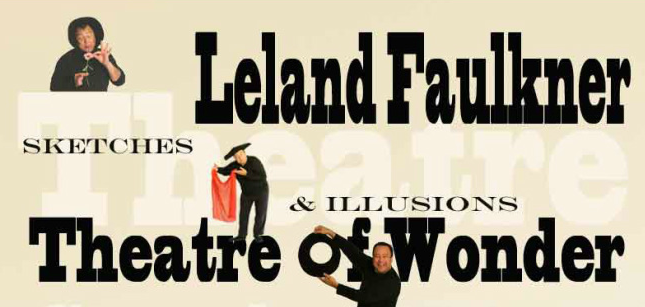|
The Breadcrumbs widget will appear here on the published site.
Theatre According to Leland FaulknerBy Christine Stoddard QuailBellMagazine.com When Leland Faulkner spoke to a class at Virginia Commonwealth University on Nov. 3, 2008, he decided to present his "philosophy on everything" related to the "great game that we call theatre that's really a metaphor for life." And just what was that philosophy? That actors should revel in theatre's magical energy and feed off of the audience's response.Faulkner's worn black fleece, faded black jeans, and old black tennis shoes painted him as a plain, unassuming man unlike the wise and sensitive fellow he proved himself to be. After all, over 30 years of professional theatre experience must have enlightened him somehow. Now it was his turn to enlighten over 120 young minds. He told the Drama 211 class, full of over one-hundred blossoming actors, playwrights, techies, designers and theatre enthusiasts, "Nothing is like live theatre---the person to person communication is the heart of this art form." Faulkner began his theatrical training as a 17-year old apprentice of the legendary mime, Tony Montanaro. Montanaro ran a one-man show on Broadway during the 1950s. He taught Faulkner the language of gesture, the sources of movement and the art of improvisation. Faulkner is grateful for his training as a mime because he learned the "eloquence of the body." He explained the importance and difficulty of being able to communicate solely with the body and not necessarily any words. Actors have to go off of a mood, interact with the audience and observe what the audience does. "Responding...that's what the audience does," he noted. Faulkner quoted the famous improvisation teacher Keith Johnstone in saying, "We get taught to be bad performers." He emphasized, "We're not used to breaking the social boundary but we have to...It's hard for us to please the other actor that we're working with and the audience" because "we've been taught not to trust our experience." But if actors follow the current running through the moment of a performance, success will be theirs. Theatre must be organic. "When anything that becomes a pedagogy that's too strict and constrained, the science of it's interesting but something you lose the quality of immediate expression." In an effort to demonstrate the value of immediate expression, Faulkner orchestrated one of his favorite exercises developed by theatre teacher Jacques Lecoq. The exercise shows what Lecoq called the "seven levels of tension." Faulkner called for seven volunteers who sat down upon the chairs set up on stage. The volunteers had to engage in the seven levels of laughter, ranging from a slight smile to an all-out, knee-slapping guffaw. T he first volunteer smiled faintly and then "passed" the laugh by making eye contact with the person to his left. Each volunteer had to express the same level of laughter. With each round, the volunteers became louder and louder until finally they were outright hysterical. The audience naturally followed suit without any kind of instruction to do so. "As the laughter traveled, you traveled with the laugh," Faulkner told the audience after the exercise was through. "For me, the byplay is what it's all about." LelandFaulkner.com Comments7/25/2012 02:48:04 am
Pretty section of content, I just stumbled upon your web site and in accession capital to assert that I acquire in fact enjoyed account your blog posts. Comments are closed.
|
|








